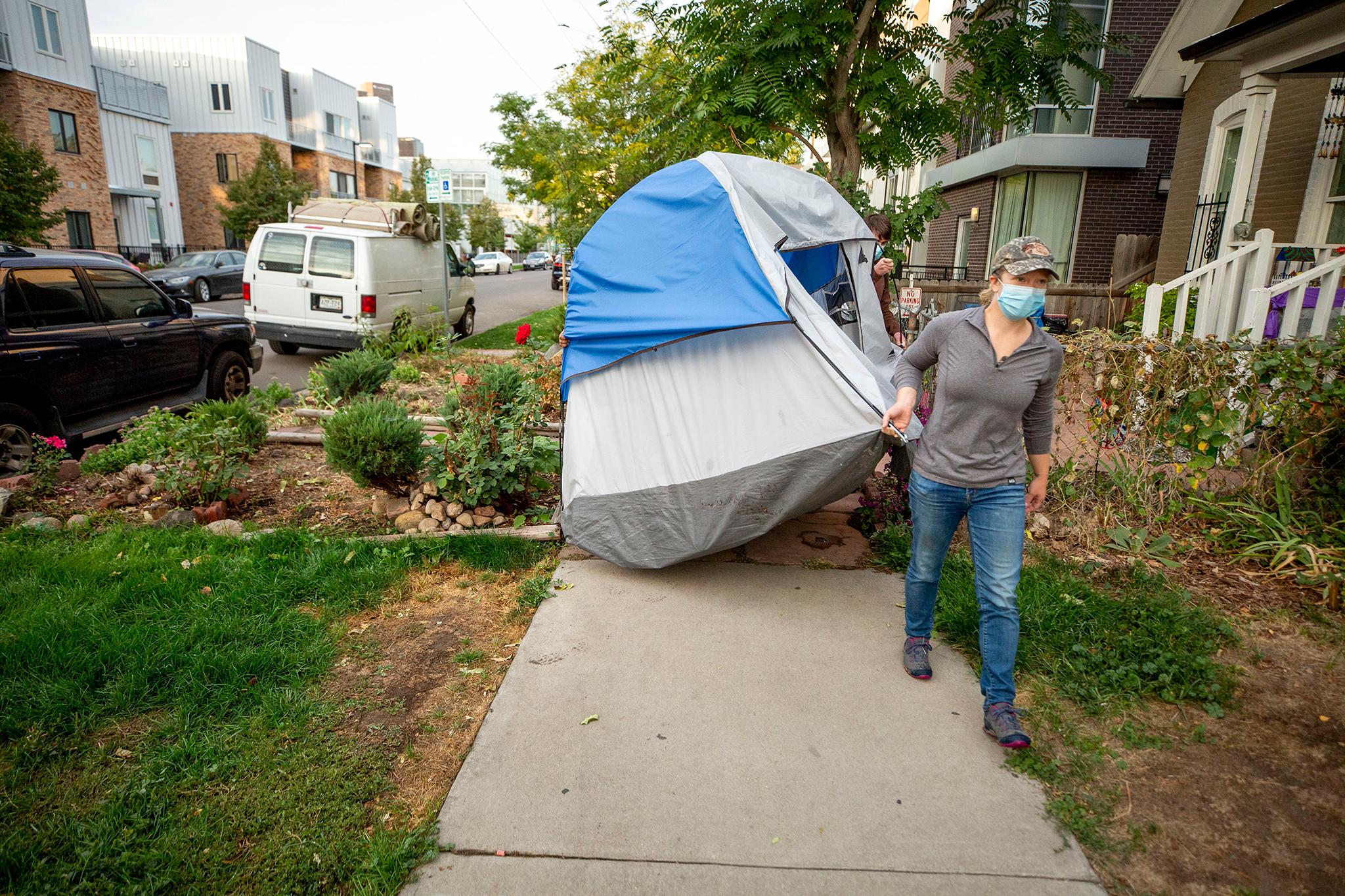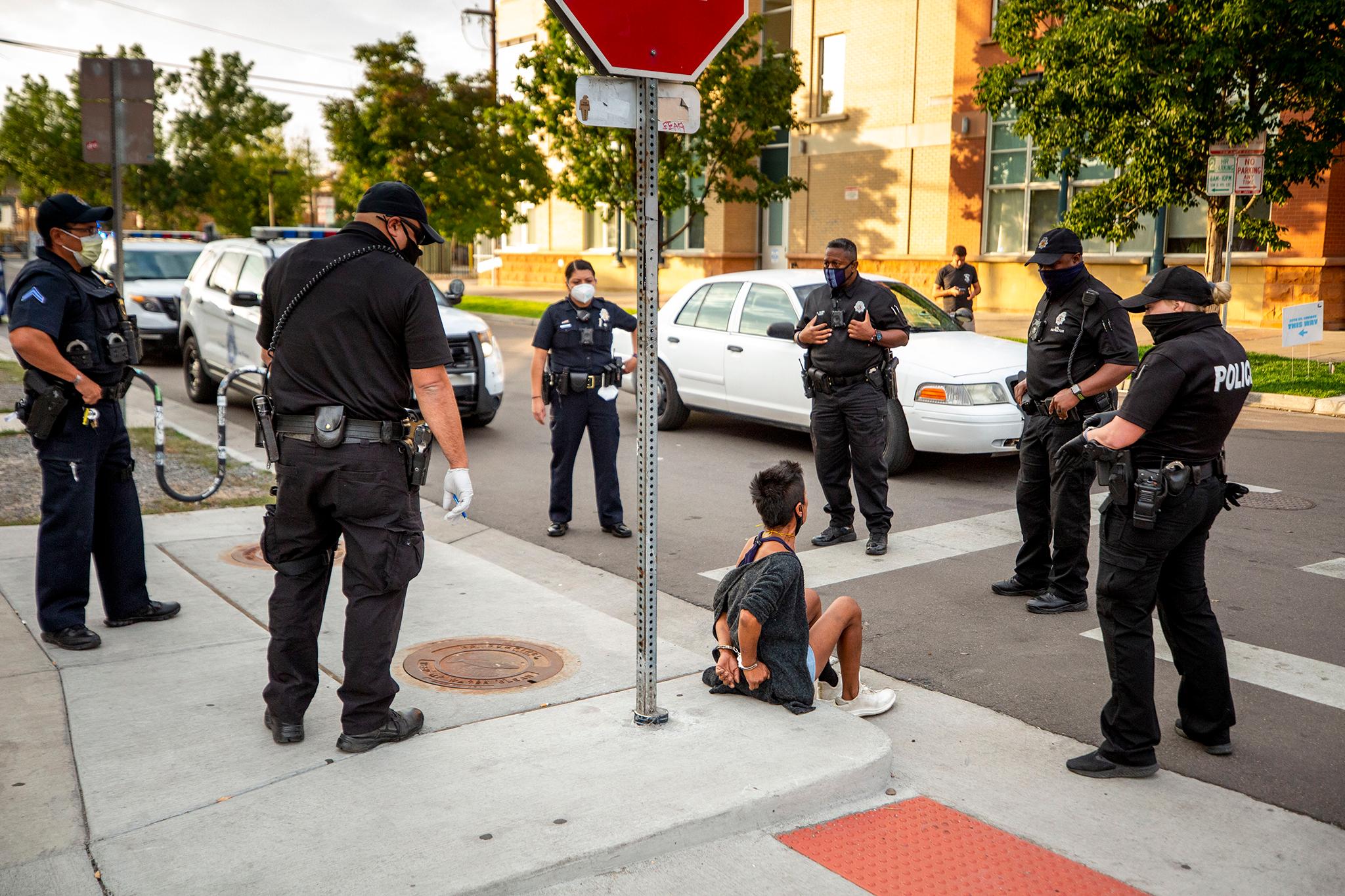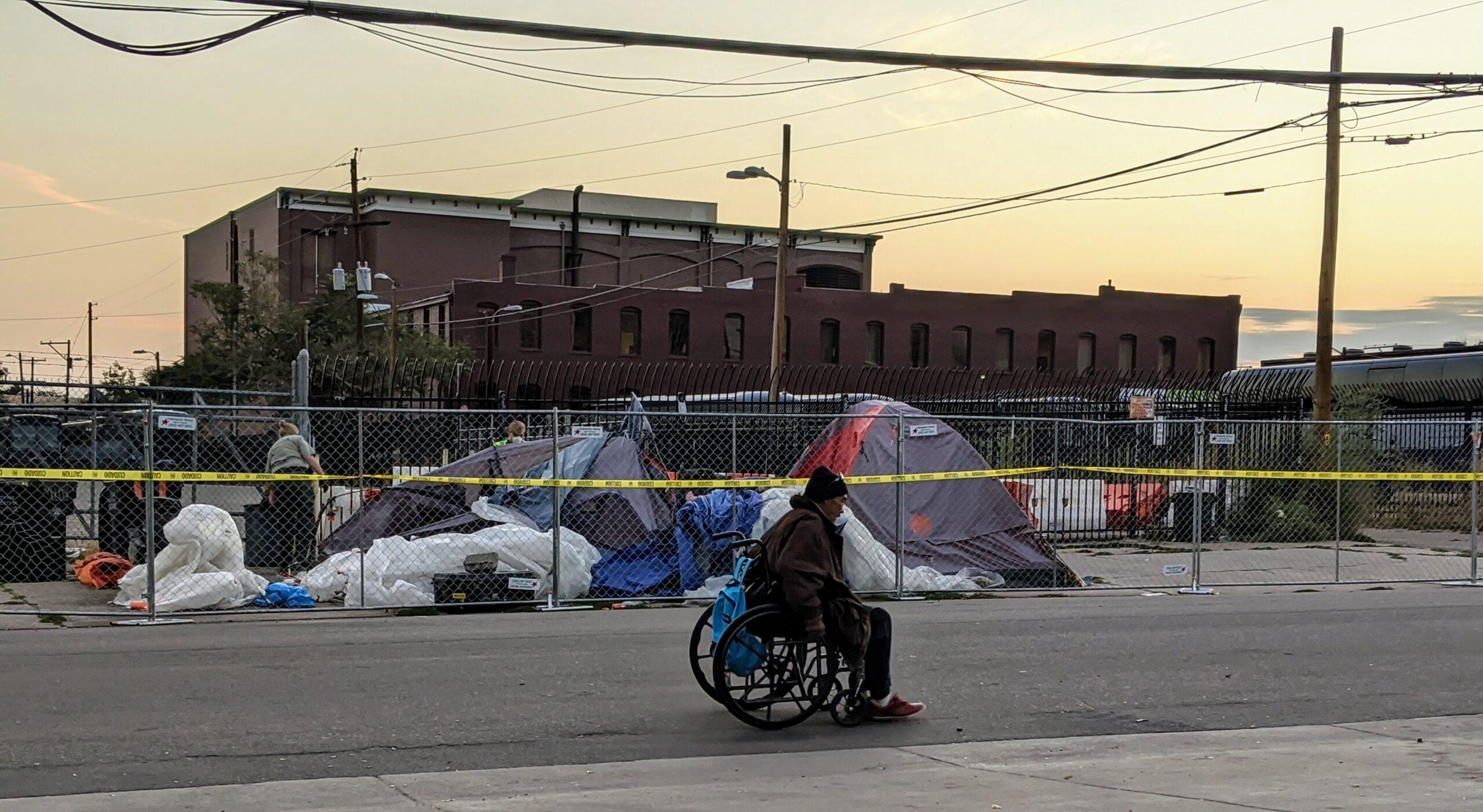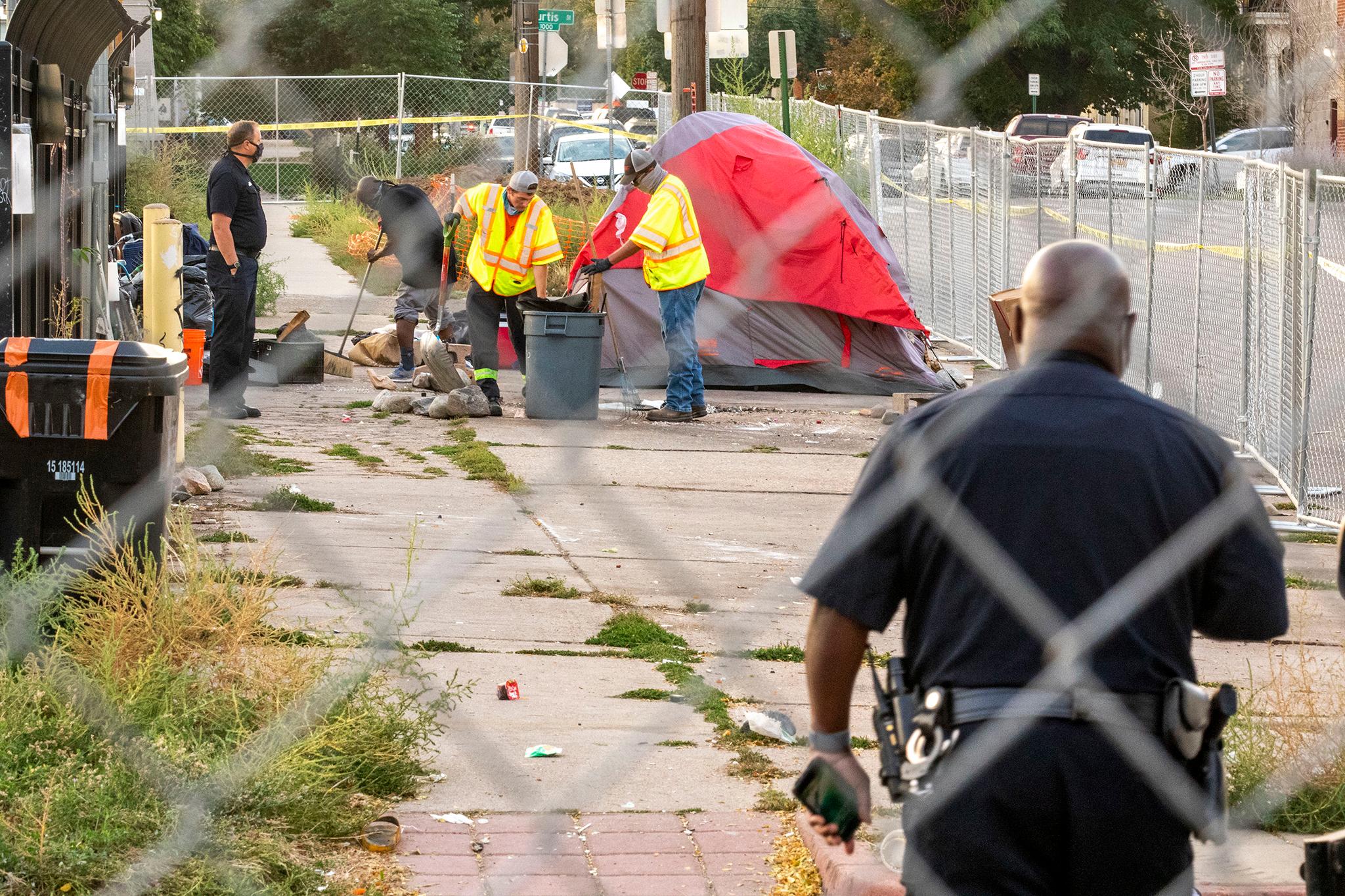Before sunrise Tuesday, several blocks in Curtis Park where people have been living in tents were closed off, and not just with the usual lengths of yellow police tape, but with chain link fencing.
Similar temporary fencing emblazoned with banners promising "brand new apartments coming soon" surrounded a nearby construction site. Inside the area closed off by police so that the Department of Transportation & Infrastructure could remove items blocking the right of way, John Hughes was considering his next move. Hughes said that he had been without a permanent home for five years and that a traumatic brain injury prevented him from working.
"They want us to go inside, where everybody's going to catch the coronavirus. I'm not going inside. I know that much," Hughes said, adding that he would probably end up not far away and still on the streets.
As Hughes spoke, police officers and a park ranger moved along the row of tents, urging people, some of whom were just waking, to move along. City workers in yellow vests used rakes to sweep up trash.
As the sun rose, tents, plastic sheeting and other items were loaded into trash trucks. A small bulldozer was being used to clear rocks and other debris from the sidewalks near University Prep, a Denver Public Schools elementary charter at 25th and Arapahoe streets. A notice on the University Prep website said students in kindergarten and first grade would start returning to classrooms the week of Oct. 5, and second through fifth graders on Oct. 21.
The Department of Transportation & Infrastructure had initially planned the clean-up for Sept. 8. That was postponed because of a snowstorm.

People living in houses and apartments in Curtis Park have long complained to city officials about tent-dwellers they have seen using drugs and urinating in public near the school. The tension between the housed and the unhoused flared briefly hours after the clean-up began Tuesday morning. Two men walking their dogs questioned a woman about a tent they did not think should have been set up on a lawn in front of a townhome. She said the men were heckling her. They said she threw a suitcase and a metal pole -- one of the men picked up the pole -- at them and that she may have had a knife. The police were called, and the woman was detained.

Christine Glenn, who has a home near the school, said she once called the police when she heard a man beating a woman in one of the tents. Glenn, who is a physician's assistant, said addressing addiction and trauma had to be part of the solution to homelessness, along with housing.
Glenn watched the start of the clean-up as she walked her dog. She said she has seen people move their tents to other parts of town after similar clean-ups, and imagined that was what would happen Tuesday.
"I just hope we can work towards a more permanent solution and take care of everybody," she said.
Derek Woodbury, a spokesman for Denver' housing department, said outreach teams have been working over the last several weeks to try to connect people living in tents near University Prep to services, shelters and housing. He said that resulted, among other things, in a half dozen people getting connected to mental health treatment and one person moving into bridge housing. Woodbury added that everyone at the encampment was offered help applying for the Denver Housing Authority lottery for housing subsidies.
City housing officials and homelessness service providers are seeing encampments grow amid the economic slowdown created by the pandemic. Existing shelters have had to reduce beds to create the social distancing necessary to stop the spread of the coroanvirus. With winter approaching, Denver is preparing to open a new shelter in northeast Park Hill.
Terese Howard, an organizer with the advocacy group Denver Homeless Out Loud, said she had been speaking to people living in tents along Arapahoe Street. Based on those conversations, Howard had emailed the mayor's office and City Council members with a list of demands, including that people from the Arapahoe encampment be provided with permanent housing, or, at least for the winter, hotel rooms or places in a sanctioned, serviced camp.
A sanctioned camp, also known as a safe outdoor space, had been considered at a site near the Arapahoe Street encampment, outside the Blair-Caldwell African American Research Library. Mayor Michael Hancock had posted on Facebook on Sept. 12 about that possibility, only to say days later, following criticism from the Five Points Business Improvement District, that the library site was no longer under consideration. It was the second time a sanctioned camp site had been publicly proposed and then withdrawn. A search continues for a site for what is expected to be the first of several sanctioned camps that will be temporary, staffed 24 hours a day and be equipped with bathrooms and showers. Sanctioned camp residents also will have access to support services.

Gary Martinez, who uses a wheelchair, was headed Tuesday morning to the showers at St. Francis, a day center for people experiencing homeless. As he passed people dismantling tents near the school, Martinez thought about what he would do if the corner nearby where he lives in a tent was targeted for a clean-up.
"If anything, I'll go down to the river," Martinez said. "There's a lot of people that stay there now, now that they've kicked everybody out of everywhere."













